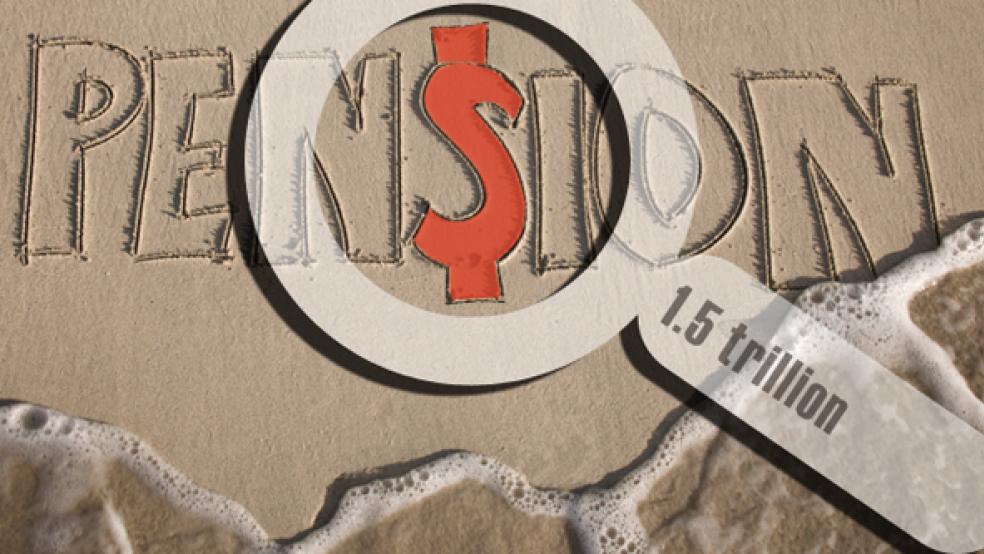To hear it from Wisconsin Gov. Scott Walker and New Jersey Gov. Chris Christie at the Republican National Convention last week, only the GOP is willing to challenge public employee unions on their generous pensions and benefits.
In his Tampa speech, Walker celebrated surviving a June 5 recall election after taking on public unions to reduce the number of people who are “dependent on the government.”
But when it comes to state government pensions, the stereotype that Republicans alone are cracking down on unions is not entirely accurate.
California Gov. Jerry Brown and fellow Democratic state lawmakers overcame union objections and approved reforms on Friday that limit benefits, raise the retirement age, and increase the personal contributions made into the pension system by state employees. New York Gov. Andrew Cuomo, also a Democrat, enacted changes in March for future state retirees that are estimated to save $80 billion over the next 30 years.
“It was exponential, it was ongoing and, literally, it’s not overly dramatic to say if these pension costs were allowed to continue you would see cities and towns across this state going bankrupt, period,” Cuomo said at the time.
The moves fit within a broader trend as the country celebrates Labor Day—when work remains scarce for millions of Americans and a stable retirement is increasingly out-of-reach. According to the National Conference of State Legislatures, 29 states enacted pension reforms last year, up from 21 states in 2010.
Their rationale is obvious according to a report by the State Budget Crisis Task Force—led by former Federal Reserve Chairman Paul Volcker—last month. It found that 126 state and local pension plans with combined assets of $2.5 trillion were short on their future obligations to retirees by $891 billion to $3 trillion.
The investment losses from the 2008 financial meltdown wiped away projected gains. Pension funds mustered an annual rate of return of 2 percent over the past five years, compared to an 8.3 percent average—tracking the growth of the stock market—over a 25-year period, according to the National Association of State Retirement Administrators.
But the task force report also fingered politicians who refused to honor the retirement commitments made to government employees as the source of the problem.
“These governments have willfully underpaid and now find it difficult to afford the contributions required,” the report concluded. “Over the last five years, state and local governments have underpaid contributions by more than $50 billion. California, Illinois, and New Jersey, with 19 percent of the nation’s population, accounted for more than half of the contribution shortfall.”
Hank Kim, executive director of the National Conference of Public Employee Retirement Systems, told The Fiscal Times that teachers, firefighters and every day bureaucrats are paying the price for political indigence.
“It’s an easy scapegoat for either party,” said Hank Kim, “Most people don’t have a pension plan. Politicians are aware of that. And there is some pension envy out there. And they are feeding off this great distrust of government and want to be seen as reformers, regardless of which party they’re from.”
And perhaps the poster child for this phenomenon is New Jersey’s Christie, who according to public records only paid $1 billion of the $3.74 billion needed this year for the state’s pension fund. Delegates at the convention heard a different story from him.
“They said it was impossible to touch the third rail of politics,” Christie said in his keynote address on Tuesday night. “To take on the public sector unions and to reform a pension and health benefit system that was headed to bankruptcy. With bipartisan leadership we saved taxpayers $132 billion over 30 years and saved retirees their pension.”
There are tales of early retirements, double-dipping and excessive pensions that naturally outrage voters.
In the California city of Stockton, which filed for bankruptcy this summer, the police chief retired at the age of 52 after eight months on the job at an annual pension of $204,000, a sign of a system run amok that disregarded the interests of taxpayers, according to Bloomberg News.
A 2010 investigative report by Ohio newspapers found that one-in-four public school superintendents cashed both a paycheck and a pension check. Ohio officials issued a study this month advising the retirement age be increased to 57 from 52 for first-responders and 67 from 62 for other employees.
Not everyone receives such lavish benefits. The annual sum paid out by the $238 billion California Public Employee Retirement System averages $27,984 a year. And many beneficiaries across the country forego Social Security as part of their arrangement.
Unlike the federal government, states with the exception of New Hampshire have laws that require a balanced budget. Union-affiliated officials contacted by The Fiscal Times largely said that states should honor their pension obligations, but, when asked whether they should cut funding from education, social programs, and public safety or hike taxes, the answer was: a solution needed to be hashed out by all the stakeholders.
“No one has more interest in the solvency of these systems,” said Jordan Marks, executive director of the union-backed National Public Pension Coalition. “In a lot of these places, the changes that were made leave workers in jeopardy. “




